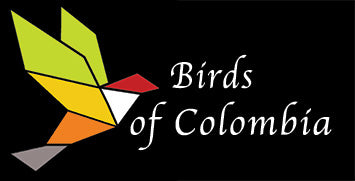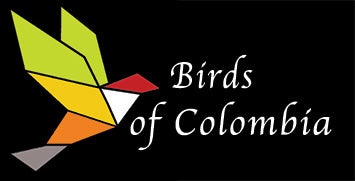Cola-de-raqueta Pierniblanco
Booted Racquet-tail
Ocreatus underwoodi
Song
Booted Racquet-tail
Appearance: The Booted Racquet-tail is a small hummingbird and it is best known for the unique "racquet" shape of its tail feathers, which are elongated with bare shafts ending in spatula-like tips. Males possess tail feathers, while females have a more tail without the racquets. The species is noted for its "boots," or fluffy tufts of feathers on its legs, which are usually white. The bird's plumage is iridescent green,with variations in coloration depending on the subspecies.
Habitat: The Booted Racquet-tail inhabits montane and cloud forests and found at elevations ranging from 1,200 to 2,600 m in areas with abundant flowering plants, which provide nectar.
Behavior: This hummingbird is highly active and agile, capable of rapid and precise flight. It feeds on nectar, using its specialized bill and hovering ability to extract it from flowers. It consumes small insects and spiders to supplement its diet with protein. The Booted Racquet-tail is territorial, often defending feeding areas from other hummingbirds.
Breeding: Breeding behavior includes elaborate courtship displays by males, who use their tail feathers to attract females. The female is responsible for building the nest, incubating the eggs, and raising the young. Nests are small cups constructed from plant fibers and spider webs placed on a branch or in a sheltered location.
Conservation Status: The Booted Racquet-tail is listed as Least Concern by the IUCN Red List.
MALE
MALE
FEMALE
MALE
Distribution
The Booted Racquet-tail is found widespread in the the three ranges of Andean regions where montane forest habitats are available.
Taxonomy
The Booted Racquet-tail (Ocreatus underwoodi)
- Kingdom: Animalia
- Phylum: Chordata
- Class: Aves (Birds)
- Order: Caprimulgiformes
- Family: Trochilidae
- Genus: Ocreatus
- Species: Ocreatus underwoodi
Vocalization
The calls of the Booted Racquet-tail are generally high-pitched and thin consisting of a variety of chirps and whistles. These vocalizations are used for communication between individuals, especially during territorial disputes and courtship.








